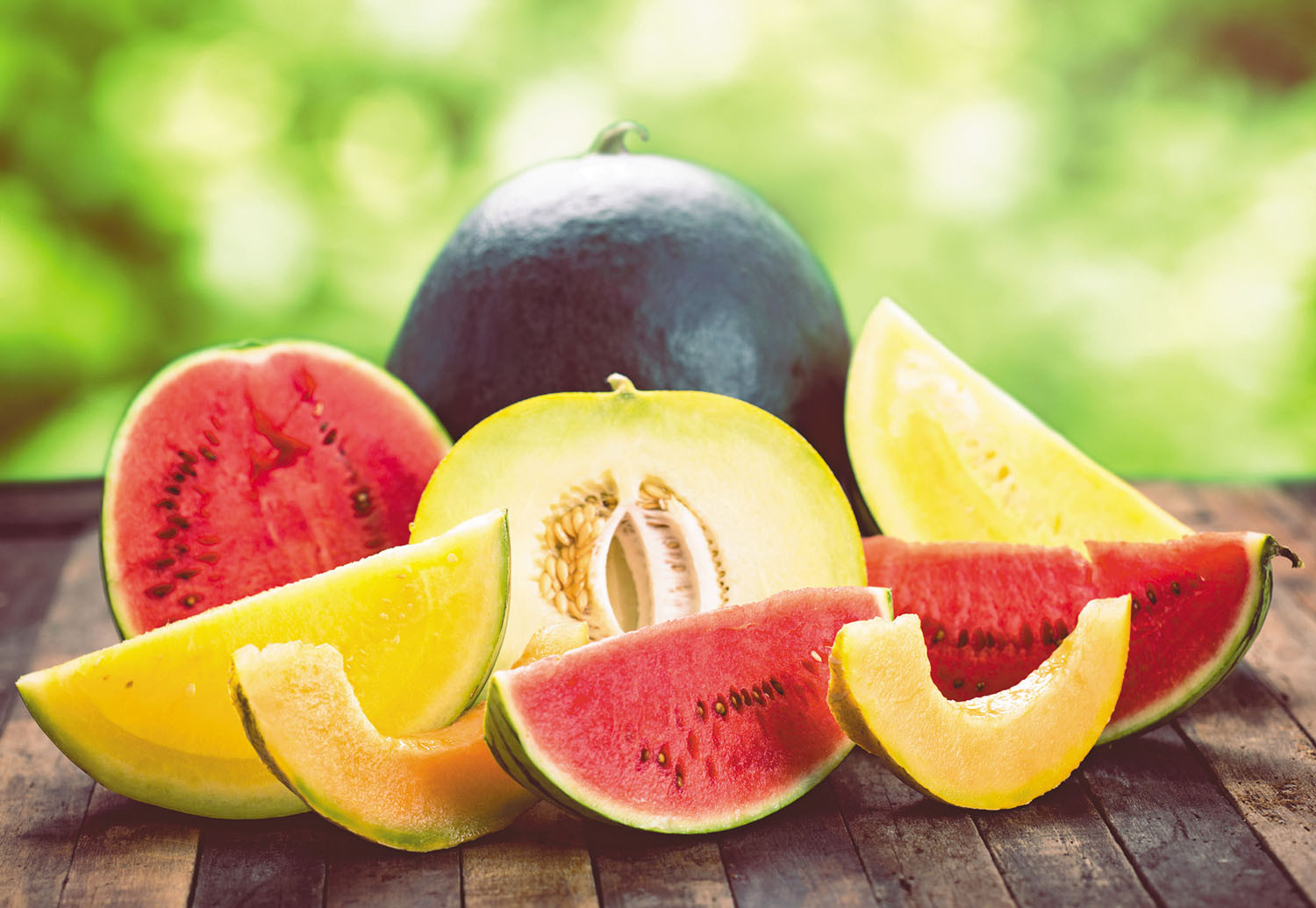Fruit of the month: Melons

An ice-cold slice of watermelon, cantaloupe, or honeydew can be especially refreshing on a hot summer’s day. Melons have a high water content and are fairly low in calories (a one-cup serving of cubed melon has only about 45 to 60 calories), making them a good choice for a sweet treat if you’re watching your weight.
Watermelon contains several nutrients known to benefit heart health. One is lycopene, an antioxidant that may help improve cholesterol levels and blood pressure. The other is citrulline, an amino acid that may boost levels of nitric oxide, a substance known to relax blood vessels and lower blood pressure.
How do you choose a ripe watermelon? They usually have a light green or white "bald spot" where the melon rested on the soil. When that spot changes to a pale yellow or cream color, the melon is ripe. Also, an unripe melon has a glossy rind that becomes more satin or matte as the fruit ripens. Thumping on the fruit to listen for a deep, heavy thud isn’t a very reliable method, according to the USDA.
Image: © pilipphoto/Getty ImagesAbout the Author

Julie Corliss, Executive Editor, Harvard Heart Letter
Disclaimer:
As a service to our readers, Harvard Health Publishing provides access to our library of archived content. Please note the date of last review or update on all articles.
No content on this site, regardless of date, should ever be used as a substitute for direct medical advice from your doctor or other qualified clinician.
















